Search
Search Results
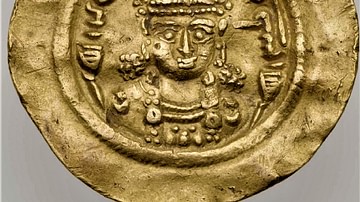
Article
Boran & Azarmiduxt: Queens of the Sassanian Empire
Boran (r. 630, 631-632) and Azarmiduxt (r. 630-631) were the only queens of the Sassanian Empire who ruled with the power of absolute monarchs. Daughters of Shahanshah (king of kings) Khosrow II (r. 590-628), Boran and Azarmiduxt, tried to...
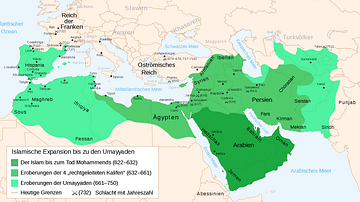
Image
Umayyad Conquest, 7th & 8th Centuries CE
Map showing the Umayyad Arab (Islamic) expansion throughout the 7th and 8th centuries CE. In dark green is depicted the extent of Islam up until the death of Mohammed (622-632 CE); in the intermediate green is shown the conquests of Rashidun...

Article
Ibn Sina, Biruni, and the Lost Enlightenment
Ibn Sina and Biruni were two of the most outstanding thinkers to have lived between ancient Greece and the European Renaissance. These two giants of a lost era of enlightenment were born in Central Asia about the year 980. For six hundred...

Definition
Sasanian Empire
The Sasanian Empire (224-651 CE, also given as Sassanian, Sasanid or Sassanid) was the last pre-Islamic Persian empire, established in 224 CE by Ardeshir I, son of Papak, descendant of Sasan. The Empire lasted until 651 CE when it was overthrown...

Definition
Persian Literature
Persian literature differs from the common definition of “literature” in that it is not confined to lyrical compositions, to poetry or imaginative prose, because the central elements of these appear, to greater or lesser degrees, in all the...
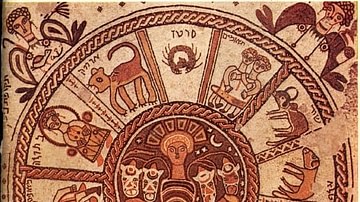
Definition
Western Astrology
Western astrology refers to a form of divination based on the motion of astronomical objects such as stars or planets. The belief that astronomical objects are divine or influence events on Earth is found in many cultures, but the practices...
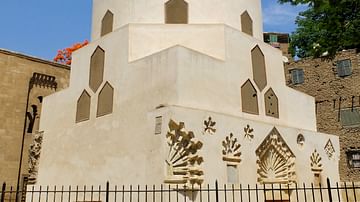
Definition
Shajara al-Durr
Shajara al-Durr (r. 1250) was the founder of the Mamluk Dynasty in Egypt, and she was the first and only woman to sit on the Islamic Egyptian throne. She held the title of sultana for only 80 days but left a lasting mark through architectural...

Definition
Persian Rose-and-Nightingale Paintings
Rose-and-nightingale paintings and patterns (gul-u-bulbul) are a subtheme of the bird-flower (gul-u-morḡ) genre in Persian art. Bird-and-flower paintings are of Chinese origin and include pictorial elements such as flowers and plants, birds...
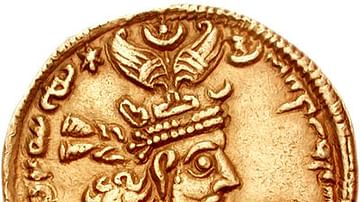
Definition
Khosrow II
Khosrow II (aka Kosrau II, r. 590-628) was the last powerful shahanshah (king of kings) of the Sassanian Empire. Grandson of Kosrau I (r. 531-579) and near-conqueror of the Byzantine Empire in the Byzantine-Sassanian War of 602-628, Khosrow...

Definition
Greek Philosophy
Ancient Greek philosophy is a system of thought, first developed in the 6th century BCE, which was informed by a focus on the First Cause of observable phenomena. Prior to the development of this system by Thales of Miletus (l. c. 585 BCE...